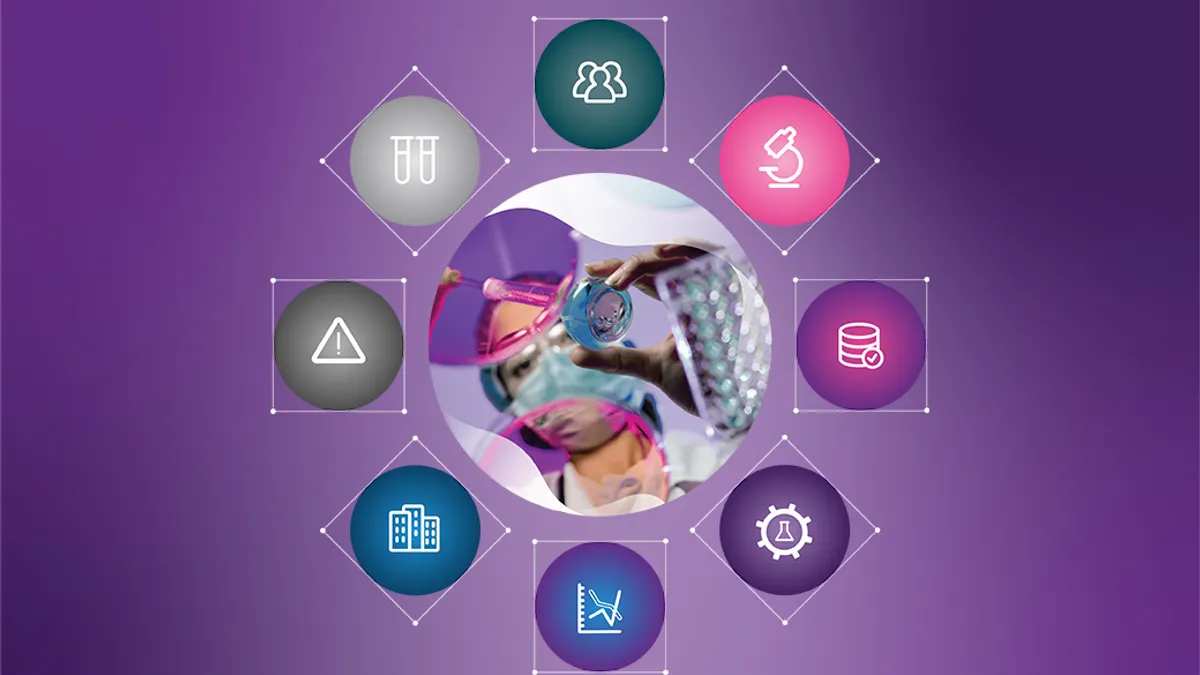Early-phase clinical trials, including phase 1 and some phase 2a studies, serve as a pivotal step for biotech companies, laying the foundation for a drug candidate’s journey to market. However, these early stages present significant challenges—nearly half of all drugs entering clinical trials do not make it past phase 1. With the average phase 1 trial costing millions of dollars and consuming valuable time, biotechs have little room for error.
Many small and mid-sized biotechs operate leanly, leaving staff with little capacity to take on new or additional responsibilities. For those developing complex and emerging modalities, it may not be possible to balance the need for deep expertise in their therapeutics with the specialised knowledge required for trial strategy, logistics and execution for successful clinical development. A 2024 ICON survey of 149 biotech professionals underscored these difficulties, identifying the top three anticipated obstacles when preparing for phase 1: (1) navigating compliance and regulatory requirements (38%), (2) biomarker selection (35%), and (3) protocol uncertainty (31%).
Consequently, many biotechs rely on external expertise to successfully transition their therapeutic innovations into the clinical setting. To navigate the complex demands of early-phase trials, a significant number turn to contract research organistions (CROs) for support. In fact, 84% of survey respondents indicated they were considering partnering with a CRO for their phase 1 clinical trials.
Such partnerships offer versatile support, including (1) consulting and advisory services in areas such as funding and regulatory compliance; (2) therapeutic expertise in a variety of indications; and (3) experienced operational perspectives to help organise such elements as clinical site management and enrolment. With a plethora of services from which to choose, biotechs can strategically enhance their internal capabilities to meet their specific needs.
When selecting a partner, many biotechs tend to prioritise operational services and experience. Among the various offerings from CROs, survey respondents highlighted access to healthy volunteers and patient populations (40%) and dedicated early-phase data sciences and reporting (35%) as the most important. Expert support in these areas is crucial, as elements like healthy volunteer and patient recruitment can be time-consuming and resource intensive. By providing the necessary infrastructure and global networks, partners can streamline operations and ease the burden on the biotech.
In addition to operational expertise, CROs bring valuable strategic insights. With experience gained from the clinical development of therapeutics in similar modalities or indications, many CROs offer extensive scientific and medical knowledge. This strategic perspective on challenges related to a drug, patient population or region, can help de-risk and expedite clinical development, ultimately improving the therapy’s chances of success. For instance, 34% of respondents identified asset development consulting, including dose selection, as a key service requirement.
Formulating a clinical development plan is another challenging aspect of early-phase trials. Given its broad scope—covering protocol development, regulatory requirements, and commercial viability—the clinical development plan is critical to a drug candidate’s success. As a result, biotechs often seek advice and guidance from external experts with extensive clinical trial experience. The majority of biotechs turn to external expertise for creating their development plans: 37% of survey respondents partner with CROs, while 25% engage at least one, but more often two or three consultants. In contrast, only 38% rely solely on internal resources for these plans.
Ultimately, a strategic partnership with experts is a tool that can be fitted to the specific needs of a biotech at any stage of clinical development. External partners can help fill the gaps in knowledge, resources or infrastructure that many leanly operating biotechs face. To learn more about the specific challenges that biotechs face in early clinical development and how to overcome them, read ICON’s whitepaper and survey report.









